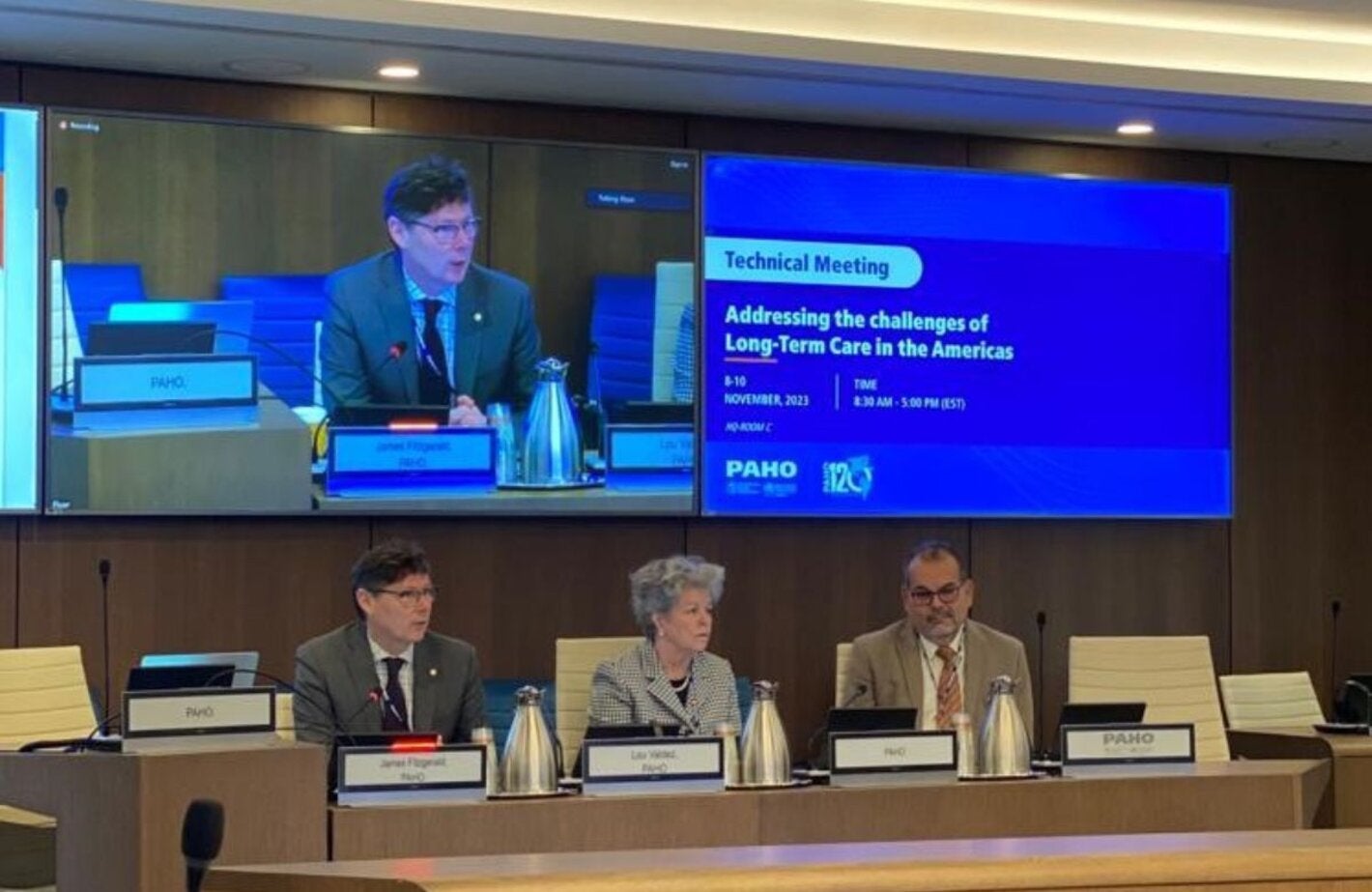
Washington, D.C., 10 November 2023 (PAHO)- The Pan American Health Organization (PAHO) held the "Technical Meeting: Addressing the Challenges of Long-Term Care in the Americas,” from November 8 to 10, where 29 specialists from the Region gathered to support the positioning of long-term care as a public health priority and strengthen PAHO´s technical cooperation to Member States in this area.
The capacity to provide long-term care is incipient in the Americas; many countries are developing long-term care policies and services. However, health and social protection systems are yet not fully meeting people's long-term care needs.
“Countries continue to rely heavily, and sometimes exclusively, on unpaid care and non-governmental groups. Additionally, there are challenges in defining the scope, purpose, and model of long-term care within the current context of health and social protection systems, with strong gender and poverty relief approaches,” said Dr. Lou Valdez, PAHO Deputy Director, at the opening session of the regional meeting.
In 2020, Latin America and the Caribbean had 88.3 million people aged five years or older living with one or more disabilities. This number is expected to increase to 145.5 million in 2050. Despite the independence of many among this group, a significant proportion of individuals living with disabilities receive care and support from carers. Care dependency can be present at any time in the life course, but its prevalence increases exponentially with age. The demographic and epidemiological transitions in the Region will increase the demand for long-term care.
Among older people aged 65 or older, the number requiring long-term care in Latin America and the Caribbean will triple over the next three decades, reaching approximately 30 million people by 2050. Over 80% of health care for people who need long-term care is provided by unpaid carers and family members, mainly women. Long-term care has a dual gender dimension, with women providing more than 70% of care for older persons and experiencing higher care-dependency ratios. Caregivers often have poorer quality of life and reduced ability to remain active in the labor market.
“We need now to address current and future needs in long-term care and support our Member States to better prepare and act on this matter,” remarked Dr. Valdez.
The PAHO Strategy for Universal Access to Health and Universal Health Coverage recognizes the contribution and value of unpaid work by women in providing health care services in the home for sick, persons with disabilities, and older people unable to take care of themselves. The strategy identifies the need for a multisectoral approach to assessing and measuring unpaid health care work in the home and the need for greater attention to specific health needs. PAHO’s 2020-2025 Strategic Plan underscores the need of monitoring the proportion of older adults 65+ dependent on care.
In addition, PAHO leads the United Nations Decade of Healthy Aging (2021-2030) in the Americas, where long-term care stands as one of the key areas of action. These initiatives present opportunities to advance on the provision of sustainable long-term care provision in the Region of the Americas.



